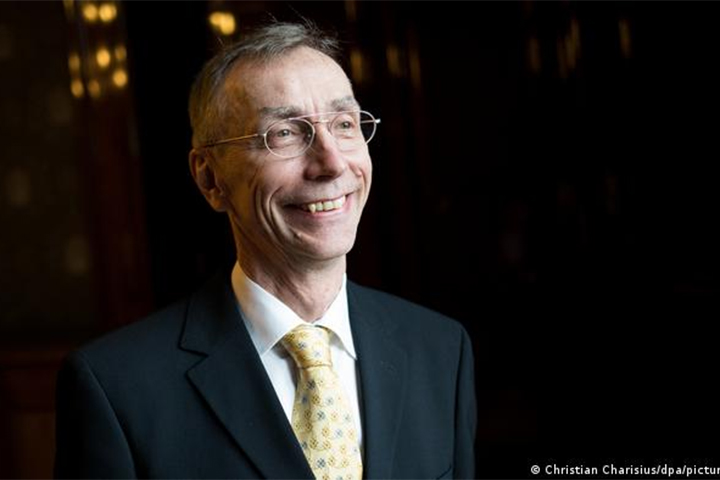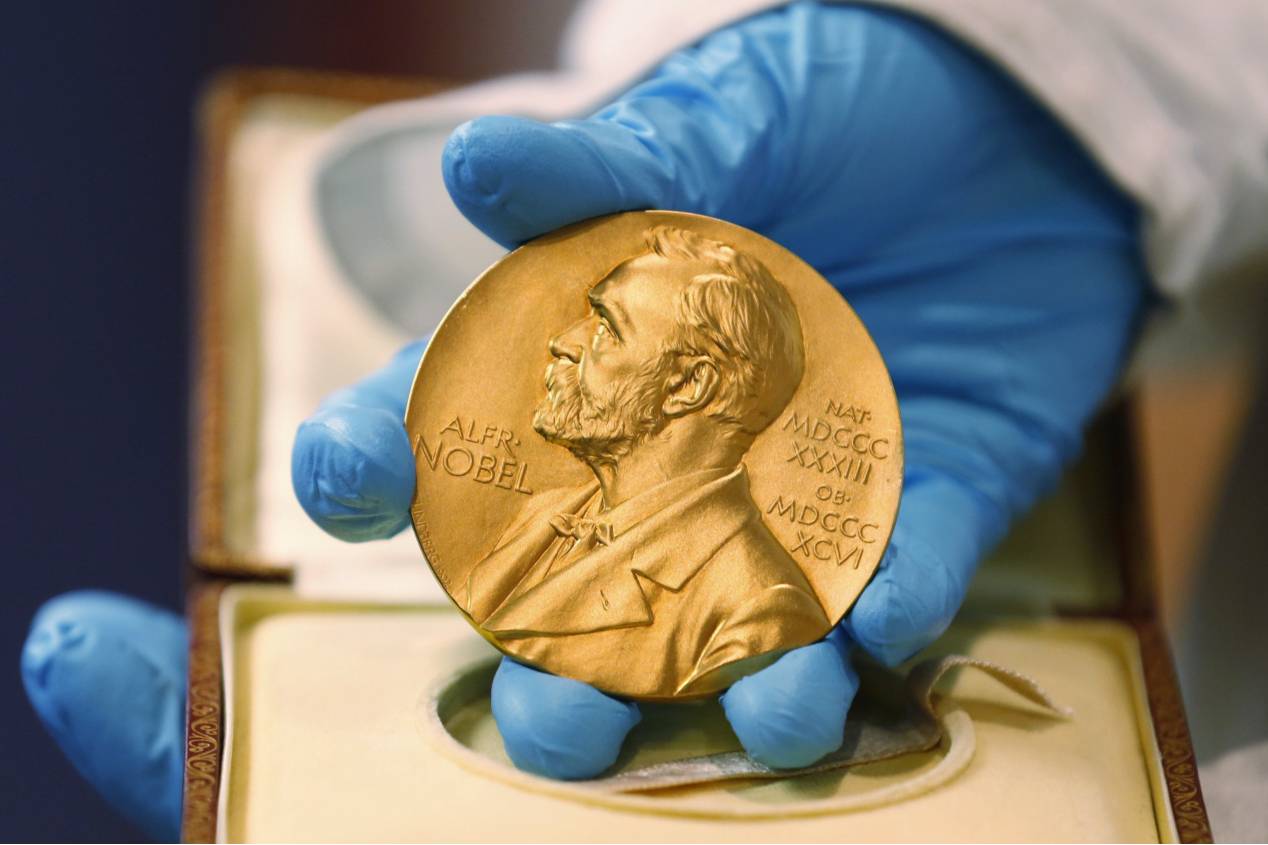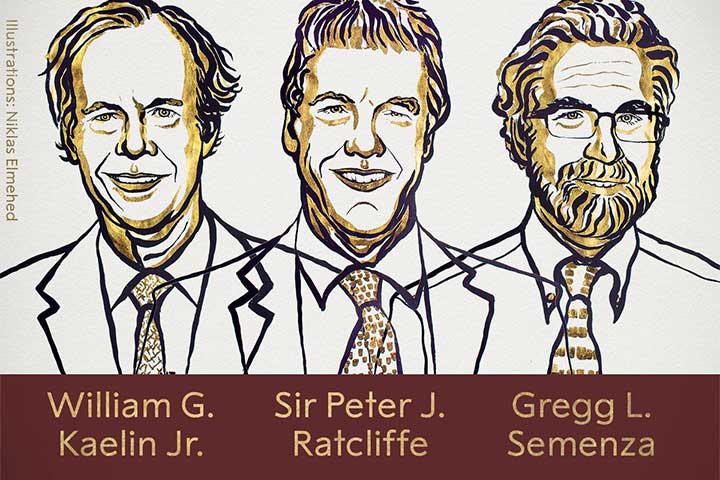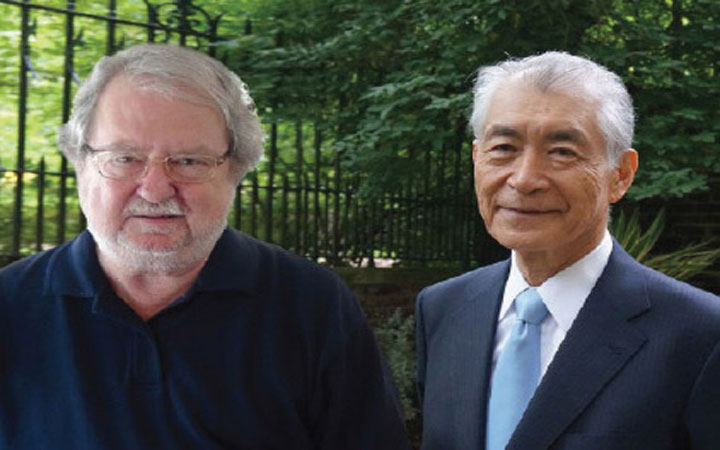3 win Nobel medicine prize for discovering hepatitis C virus
Americans Harvey J. Alter and Charles M. Rice and British-born scientist Michael Houghton won the Nobel Prize for medicine on Monday for their discovery of the hepatitis C virus, a major source of liver disease that affects millions worldwide.
Announcing the prize in Stockholm, the Nobel Committee noted that the trio's work identified a major source of blood-borne hepatitis that couldn't be explained by the previously discovered hepatitis A and B viruses. Their work, dating back to the 1970s and 1980s, has helped saved millions of lives, the committee said.
"Thanks to their discovery, highly sensitive blood tests for the virus are now available and these have essentially eliminated post-transfusion hepatitis in many parts of the world, greatly improving global health," the committee said.
"Their discovery also allowed the rapid development of antiviral drugs directed at hepatitis C," it added. "For the first time in history, the disease can now be cured, raising hopes of eradicating hepatitis C virus from the world population."
The World Health Organization estimates there are over 70 million cases of hepatitis C worldwide and 400,000 deaths from it each year. The disease is chronic and a major cause of liver cancer and cirrhosis requiring liver transplants.
The medicine prize carried particular significance this year due to the coronavirus pandemic, which has highlighted the importance that medical research has for societies and economies around the world.
Will Irving, a virologist at the University of Nottingham, said that identifying hepatitis C had been the "holy grail" in medicine.
"After hepatitis A and B were discovered in the 1970s, it was clear there was still at least one other virus or more that were causing liver damage," he said.
"We knew there was a virus in the blood supply, because when people had blood transfusion they would get liver damage," Irving said. "It was recognized as a risk but there was nothing we could do. We didn't know what the virus was and we couldn't test for it."
Nobel Committee member Patrik Ernfors drew a parallel between this year's prize and the current rush by millions of scientists around the world to combat the coronavirus pandemic.
"The first thing you need to do is to identify the causing virus," he told reporters. "And once that has been done, that is, in itself, the starting point for development of drugs to treat the disease and also to develop vaccines against the disorder."
"So the actual discovery, viral discovery itself, is a critical moment," said Ernfors.
Unlike hepatitis A, which is transmitted via food or water and causes an acute infection that can last a few weeks, hepatitis B and C are transmitted through blood.
American scientist Baruch Blumberg discovered the hepatitis B virus in 1967 and received the 1976 Nobel Prize in medicine, but this did not explain all cases of chronic hepatitis, a disease that was becoming more common even in apparently healthy people who had received or given blood.
"Before the discovery of the hepatitis C virus, it was a bit like Russian roulette to get a blood transfusion," said Nobel Committee member Nils-Goran Larsson.
Alter, who was born in 1935 in New York, was working at the U.S. National Institutes of Health in Bethesda when he discovered that plasma from patients who didn't have hepatitis B could also could transfer the disease.
"The breakthrough came in 1989, when Michael Houghton and colleagues working at Chiron Corporation used a combination of molecular biology and immunology-based techniques to clone the virus," said Nobel Committee member Gunilla Karlsson-Hedestam.
Later, Nobel winner Rice confirmed that a cloned hepatitis virus alone could cause persistent infection in chimpanzees and reproduce the disease observed in humans.
The hepatitis C virus belongs to a group known as flaviviruses that also includes West Nile virus, dengue virus and yellow fever virus.
Thomas Perlmann, the Secretary-General of the Nobel Committee, said he managed to reach two of the winners, Alter and Rice.
"I had to call a couple of times before they answered," he said. "They seemed very surprised and very, very happy."
The prestigious Nobel award comes with a gold medal and prize money of 10 million Swedish kronor (over $1,118,000), courtesy of a bequest left 124 years ago by the prize's creator, Swedish inventor Alfred Nobel.
Graham Foster, professor of hepatology at Queen Mary University, said the discovery of hepatitis C had prevented millions from getting sick or dying of the disease or other liver problems and that the awarding of the Nobel to Alter, Houghton and Rice was very well deserved.
Foster said the discovery has had significant impacts in both developing countries, like Egypt and Pakistan, where millions were infected by the disease via contaminated medical equipment or procedures, and in developed countries like the U.S., where the blood supply itself was often contaminated.
"This discovery allowed for safe blood transfusion and it allowed the rapid development of treatments for hepatitis C," Foster said. "We are now in a position where we have drugs that are 96% effective if you take a pill for eight weeks."
He said Egypt had implemented a massive screening program to detect hepatitis C and virtually eliminated the disease.
Foster estimated in recent years, tens of millions of people have been infected with hepatitis C.
"Identifying the virus has allowed us to protect the majority of those people."
The Nobel Committee often recognizes basic science that has laid the foundations for practical applications in common use today.
"It takes time before it's fully apparent how beneficial a discovery is," said Perlmann. "Of course these serological tests have been around for quite a while, but the antiviral drugs that emerged as a consequence of this significant discovery have been much more recent."
Monday's medicine award is the first of six prizes in 2020 being announced through Oct. 12. The other prizes are for outstanding work in the fields of physics, chemistry, literature, peace and economics.
Source: AP/UNB
AH
05 Oct 2020,19:58
















 Live Tv
Live Tv





